Foreign Specialty Employees (H-1B Visa)
On April 1, 2011, the United States Citizenship and Immigration Service (USCIS) began accepting H-1B visa applications for the 2012 fiscal year (beginning on October 1, 2011). In 2008, USCIS received approximately 163,000 petitions during the five-day filing period and conducted a random lottery to select the 65,000 petitions that would be eligible for processing. In 2007, the USCIS reached its H1-B visa quota in one day. Due to the slump in the economy, last year was the first year where all H-1B visas were not taken until the end of January 2011.
The H-1B visa program enables U.S. employers to hire highly educated foreign professional workers for “specialty occupations” (jobs that require at least a bachelor’s degree or the equivalent in the field of specialty). These foreign workers provide needed specialized or unique skills, fill a temporary labor shortage and/or supply global expertise. Holders of these visas can stay in the United States for up to six (6) years.
Although it is unlikely that the USCIS will reach its H-1B cap for the 2012 fiscal year soon after April 1, 2011, employers seeking H-1B visas should start planning ahead. Unlike in previous years, obtaining a certified Labor Condition Application (LCA) is no longer immediate upon submission online. Now employers have to submit the LCA to the Department of Labor and wait up to seven days if not longer to obtain an approved LCA. The LCA contains several attestations by the employer including an attestation that they will pay the H-1B employee the prevailing wage for the job position.
Prudent employers need to start considering and planning their H-1B visa needs for the upcoming fiscal year. It is also advisable for employers to start making contingency plans for bringing temporary professional workers to the United States if the H-1B cap is reached.
Please note that H-1B visas are limited to 65,000 per year (subject to certain exemptions from the cap as well as free trade agreements for certain nations, reducing the actual number to 58,200).
Additionally, the following are exempt from the cap: 1) extensions for current H-1B workers; 2) concurrent employment in a second H-1B position; 3) amended petitions; 4) H-1B employment for nationals of Chile or Singapore, 5) petitions for new employment at an exempt organization such as a nonprofit research organization, an institution of higher education or an affiliated non-profit entity and 6) 20000 H-1B visas for graduates of U.S. universities who have earned a Master’s or higher degree.
Should you fail to meet the requirements and deadlines there may be alternative options available to you. Please contact Miller|Conway, South Carolina immigration attorneys, should you have any questions regarding immigration matters.


